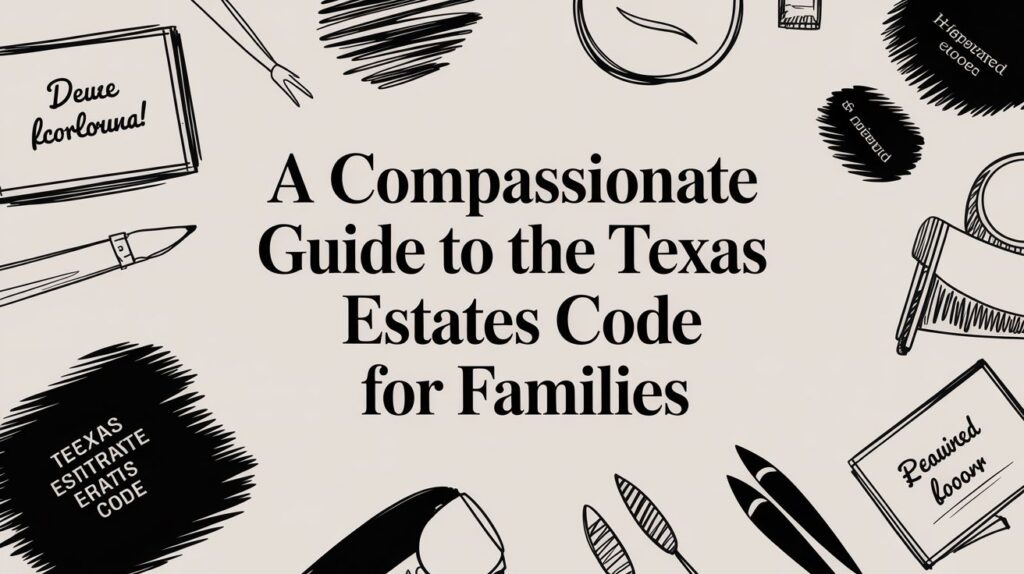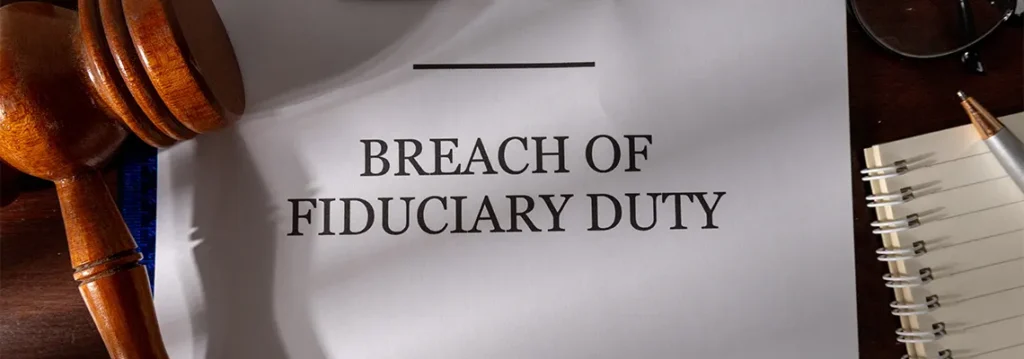If you’ve recently lost a loved one and are wondering which Texas court hears probate cases, you’re not alone. This is one of the most common and often confusing questions families face after someone passes away. Navigating Texas probate law can feel like a maze—especially when grief, paperwork, and deadlines all collide at once. But here’s the good news: understanding the probate court system in Texas is completely manageable when you break it down step by step.
This article takes you deep into the details of how probate works in Texas, which court has jurisdiction over your loved one’s estate, and how to make sure your case ends up in the right hands. We’ll use real-world scenarios, explain the structure of Texas courts, and give you clear direction so you don’t waste time or money trying to figure it out on your own.

Why the Court Matters in Texas Probate Cases
Before we dig into which Texas court hears probate cases, it’s important to understand why getting the right court matters. The court you file in isn’t just a bureaucratic detail—it can affect the timeline of your case, how efficiently things are handled, and even how disputes get resolved if the will is contested.
Probate is a legal process where the court supervises the administration of a deceased person’s estate. That includes verifying wills, appointing executors, resolving debts, and distributing assets. If the wrong court is selected, your case might get delayed—or even dismissed—forcing you to start over.
Texas doesn’t have one uniform probate court system across the entire state. Instead, which Texas court hears probate cases depends largely on where the decedent lived and died, the type of probate you’re filing, and the local court structure in that specific county.
Understanding the Texas Court Structure
Texas has one of the more complex judicial systems in the country. To understand which Texas court hears probate cases, you need to know how courts are structured across the state. Here’s a basic breakdown of the relevant court types:
Constitutional County Courts
These courts exist in every Texas county and typically handle probate matters—especially in counties that don’t have specialized probate courts. In smaller or rural counties, the Constitutional County Court is the default court for probate cases.
Statutory County Courts (aka County Courts at Law)
In more populated counties, the Statutory County Courts take over many of the probate functions. These courts have judges who may receive specialized training in probate, guardianship, and estate administration.
Statutory Probate Courts
Found in only 10 of Texas’s largest counties—including Harris, Dallas, Bexar, and Travis Statutory Probate Courts are the elite courts for probate matters. They are specifically designed to handle complex or high-value probate cases. If you’re in one of these counties, this is likely which Texas court hears probate cases for your family.
District Courts (In Rare Cases)
While rare, some District Courts may hear probate-related disputes, especially if a probate issue turns into a broader civil lawsuit involving large-scale estate litigation. These courts aren’t typically where you’d file a will for probate but may become involved if things escalate.

Real Example: Harris County and the Statutory Probate Courts
Let’s say your grandmother passed away in Houston. You know she had a valid will, and you’ve been named the executor. Now what?
In Harris County, which Texas court hears probate cases? The answer is the Statutory Probate Court. Specifically, Harris County has multiple probate courts—Probate Courts 1, 2, 3, and 4—each with their own judge. You would file the will and request to open probate in the appropriate Statutory Probate Court based on jurisdiction and docket availability.
This structure helps move cases efficiently. The judges in these courts know probate law inside and out, which can mean quicker decisions and fewer complications.
How to Locate the Correct Court in Your Texas County
If you’re unsure which Texas court hears probate cases where your loved one lived, there are a few simple ways to find out:
- Start with the County Clerk’s Office: Most Texas counties have a probate section on the County Clerk or County Courts website. This is often the best place to begin.
- Check the Texas Judicial Branch Website: Their site offers county-by-county breakdowns of court jurisdictions.
- Call the Local Courthouse: Don’t underestimate the power of a phone call. Courthouse clerks are used to guiding people through probate filings.
- Look at the Decedent’s Last Residence: Jurisdiction typically lies in the county where the person permanently resided at the time of death.
The Role of Venue in Probate Court
Jurisdiction answers the question of which Texas court hears probate cases, but venue digs into which specific location within the court system is the proper place to file.
In Texas, the proper venue for probate is generally:
- The county where the decedent resided at the time of death
- If the decedent had no fixed residence, the county where the majority of their property is located
- Or, if there’s no known residence or property in Texas, the county where they passed away
Filing in the wrong venue can lead to delays, objections, or even dismissal. That’s why understanding both jurisdiction and venue is crucial when starting probate.
When Multiple Courts Have Authority
Sometimes, more than one court can legally hear your probate case. For instance, if the decedent owned property in multiple counties, you might be dealing with an ancillary probate situation. This typically happens when someone dies in one county but owns real estate in another. In such cases, you file the main probate where they lived and an ancillary probate in the county where the additional property is located.
This is another layer of complexity in answering which Texas court hears probate cases, and it’s why many families consult with a probate attorney when assets are spread across counties.
The Importance of the Court’s Experience in Probate Cases
Just because a court can legally hear your case doesn’t mean it’s the best place to file. Some judges rarely deal with probate matters, which can lead to slow decisions or misunderstandings of complex estate issues. Filing in a court familiar with probate law can save months—or even years—of delays.
In Statutory Probate Courts, judges and staff handle probate every day. They understand nuances like:
- Independent vs. dependent administration
- Will contests and caveats
- Guardianship procedures
- Muniment of Title filings
That means they’re better equipped to rule quickly and fairly, making your probate process smoother from start to finish.
Real-Life Scenario: Mistakenly Filing in the Wrong Court
Let’s consider a case out of Travis County. Emily, a niece who lived out of state, tried to file her uncle’s will in a small-town Constitutional County Court where he owned property. She didn’t realize he had a permanent residence in Austin, which is in Travis County. As a result, her probate petition got rejected. By the time she filed in the correct court—a Statutory Probate Court in Travis County—six weeks had passed, and several creditors had already filed claims. That delay cost the estate thousands in legal and financial complications.
This is why it’s critical to know which Texas court hears probate cases from the outset.
What About Small Estates? Do They Still Go Through Probate?
Not every estate needs a formal probate proceeding. Texas offers simplified processes for small estates:
- Muniment of Title: If there’s a will and no outstanding debts (aside from the mortgage), you might be able to use this streamlined probate alternative, which confirms the will without needing full administration.
- Small Estate Affidavit: If the estate is valued at less than $75,000 (excluding the homestead and exempt property), you may qualify for a Small Estate Affidavit, which is filed in the same court that would normally handle probate.

Even in these situations, you still need to file in the correct court. So again, the question of which Texas court hears probate cases is still relevant—even when probate is minimal.
How Do You Know If Probate Is Required?
Here’s a quick checklist to determine if you’ll need to file in probate court:
- Was the decedent the sole owner of real estate?
- Did they die without a will?
- Are there disputes among heirs?
- Do assets exceed $75,000 (excluding exempt property)?
- Are there debts or creditors requiring payment?
If you answered “yes” to any of these, you’ll likely need to file probate—and you’ll need to figure out which Texas court hears probate cases in your county.
Helpful Tips for Navigating Probate Court in Texas
- Get Certified Copies of the Death Certificate Early: Courts and financial institutions will require them.
- Read the Will Carefully: Look for information on executor appointment, heirs, and any special conditions.
- Stay Organized: The court will need a list of assets, debts, heirs, and more.
- Don’t Ignore Deadlines: Texas probate law includes specific time limits. Missing them can be costly.
- Consult an Attorney for Complex Estates: Especially when dealing with blended families, disputed wills, or out-of-state assets.

Choosing the Right Texas Probate Court Saves Time, Money, and Stress
Probate doesn’t have to be a painful, drawn-out process. But it does require accuracy—especially when it comes to filing in the right court. By understanding which Texas court hears probate cases, you can save your family time, money, and unnecessary stress during an already difficult period.
Whether your case belongs in a Constitutional County Court, a Statutory County Court, or a specialized Statutory Probate Court depends on where your loved one lived and how their estate was structured. With the right information, a little research, and—if needed—legal support, you can ensure your probate case moves forward efficiently and respectfully.
Remember, probate isn’t just about paperwork. It’s about honoring someone’s legacy the right way, through the right legal channels. And that starts with knowing which Texas court hears probate cases and making sure your case lands in the right courtroom.








